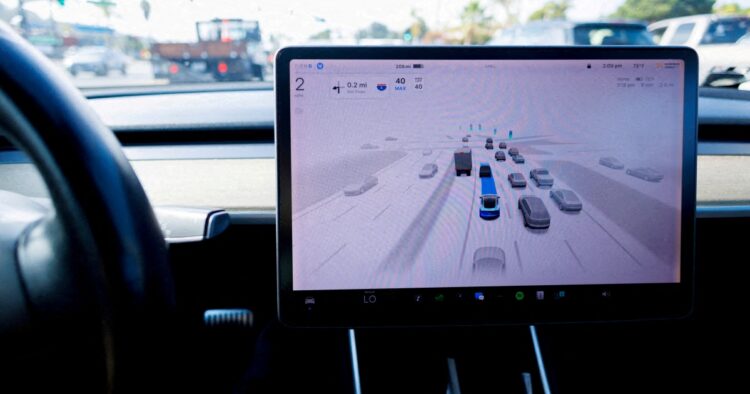KEY POINTS
- US eases safety rules to help Tesla and others test self-driving cars faster
- Elon Musk’s long-standing demand on crash reporting gets approved
- China’s BYD launches free autonomous tech, raising pressure on US automakers
The Trump administration has announced major changes in rules that will help American car companies, especially Tesla, move faster in making self-driving vehicles. These changes come at a time when the United States is competing with China to lead the world in the technology of autonomous driving.
These new rules were shared by the US Department of Transportation and the National Highway Traffic Safety Administration (NHTSA). They will allow carmakers to apply for special permissions to test self-driving cars even if the cars don’t follow some current safety rules. But these permissions will be limited to non-commercial purposes like research and technology testing.
Transportation Secretary Sean Duffy said, “We’re in a race with China to out-innovate, and the stakes couldn’t be higher.” He added that the new rules will remove unnecessary regulations and help create a single national standard for all companies.
One of the biggest complaints from Tesla and its CEO, Elon Musk, was about the strict crash reporting rules. NHTSA has now said that it will simplify these rules. Companies will still need to report crashes, but they won’t have to fill out extra or repeated reports. This will allow them to focus more on serious safety matters.
Tesla has faced many investigations over its self-driving features, like “Autopilot” and “Full Self-Driving” (FSD). At present, there are eight open investigations into Tesla crashes, and five are directly linked to its self-driving systems. Musk has often criticized the current rules and said they slow down progress.
Unlike Google’s Waymo, which runs completely driverless taxis, Tesla’s FSD still needs a human driver to be alert and ready to take control at any moment. However, Tesla is planning to take a big step this June by launching “Cybercabs” in Austin, Texas. These new cars will have no steering wheels or pedals, depending entirely on automation. But for this to happen, Tesla needs special approval from NHTSA — approvals that have rarely been given so far.
At the same time, China is moving ahead with its own technology. Chinese car company BYD recently released its own advanced self-driving system called “God’s Eye”, and they’re offering it for free. Tesla is also trying to get permission to expand its FSD in China, but it’s not easy because of the ongoing trade issues between the US and China.
This is where things get more serious. While China is trying to quickly spread its self-driving systems, the US is responding by giving more support to its own carmakers. This is not just about technology — it’s also about national security, trade, and jobs.
The US has already placed high tariffs on many Chinese products, including electric vehicles, to protect American industries. These tariffs were meant to stop China from flooding the US market with cheap, government-supported goods that could hurt US businesses.
Now, with the race heating up in self-driving cars, it’s clear that China is trying to dominate yet another area using similar tactics. The US is right to push back. Helping companies like Tesla and cutting red tape is an important way to make sure American innovation stays ahead.
The new rules show that the US government is serious about not letting China take the lead in this important technology. While Chinese companies offer free tools and flood markets, American companies have to deal with complex rules and unfair competition. These changes are a step towards leveling the playing field.
In the end, the goal is clear: to make sure that the future of self-driving cars is led by America, not by a country like China that uses aggressive strategies and government support to take over global markets.

















Comments